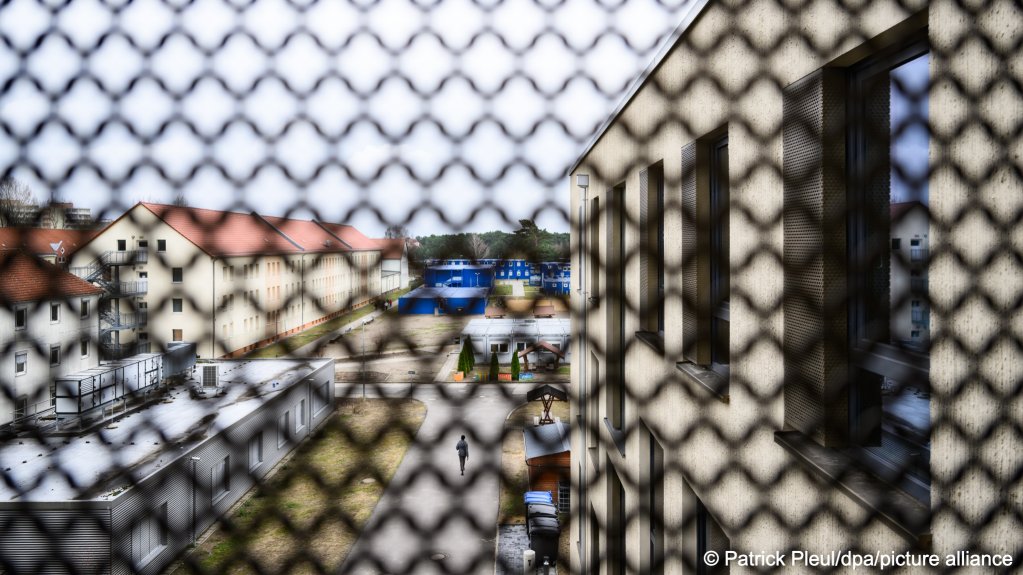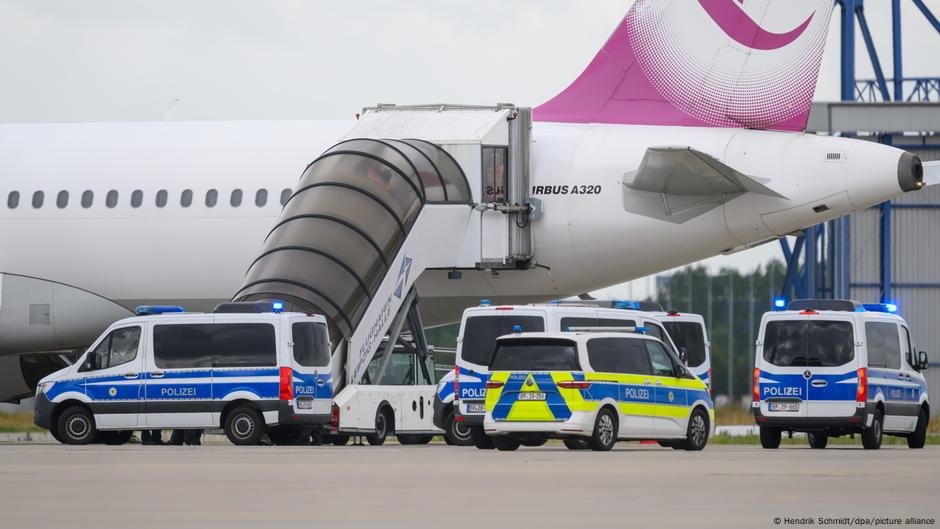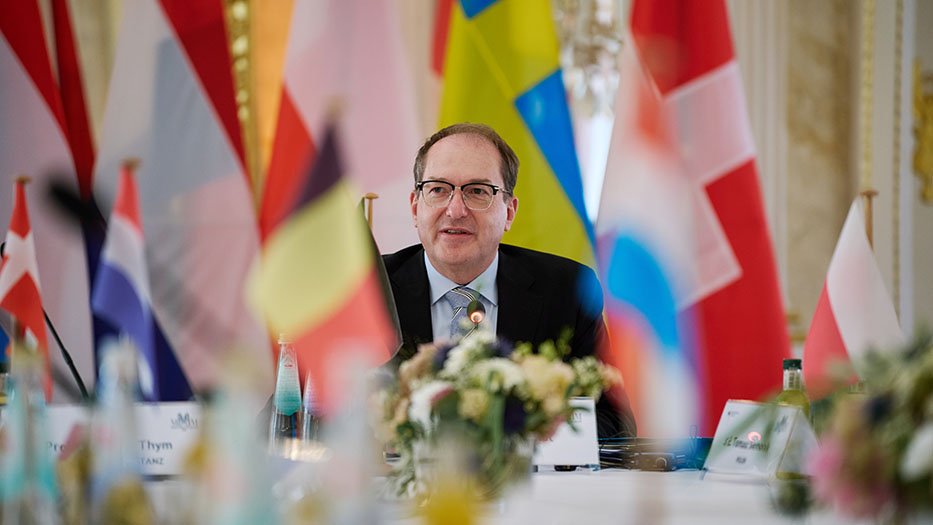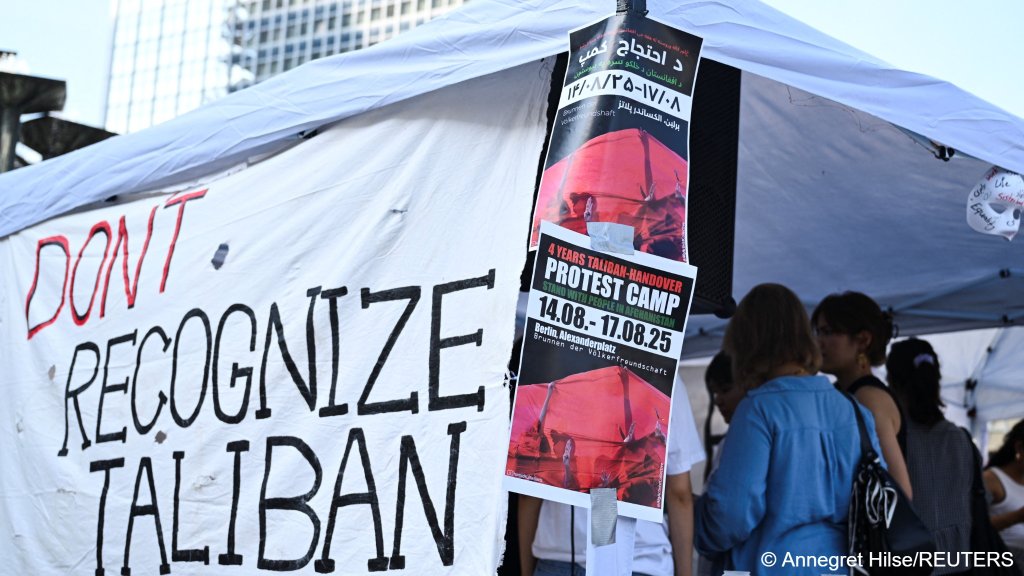Interior Minister Alexander Dobrindt has proposed that Germany could carry out deportations to Afghanistan on behalf of other EU states, amid EU talks on a new Return Regulation requiring mutual recognition of deportation orders.
German Federal Interior Minister Alexander Dobrindt has proposed that Germany could, in future, carry out deportations to Afghanistan on behalf of other EU states. “Conversely, perhaps other countries can take over repatriations where they have negotiated better agreements on returns,” he said after discussions with his European counterparts in Luxembourg.
At the meeting, the ministers also discussed whether EU countries should be required to recognize deportation orders issued by other member states. The issue is part of the European Commission’s proposed Return Regulation, which seeks to replace the 2008 Return Directive and is considered particularly controversial among member states.
According to the German government, countries affected by so-called secondary migration -- the onward movement of asylum seekers from the EU country of first entry to "destination states" such as Germany -- fear being left with the administrative burden, costs, and legal uncertainties of deportations.
Dobrindt emphasized that simply recognizing a return order is not enough. “Of course, there can’t be a system in which some states merely recognize that deportations may occur, while others are compelled to carry them out," he said. As a possible reform, he proposed that member states could take over deportations for others, provided they hold corresponding agreements with third countries.
The European Commission’s latest progress report on implementing the Pact on Migration and Asylum underlines that strengthening "return and readmission cooperation with third countries” is now a key external policy priority. The EU is expanding partnerships with governments in countries of origin and transit to facilitate deportations and reduce irregular arrivals. This focus echoes Dobrindt’s position that direct negotiations with regimes such as the Taliban are necessary to ensure the return of offenders, even when diplomatic relations remain limited.
The EU Return Regulation
According to the European Council on Refugees and Exiles (ECRE), the Commission’s March 2025 proposal for a Return Regulation introduces a European Return Order (ERO), under which EU states will be required to recognize and enforce each other’s deportation decisions by 2027. This system effectively allows one member state to carry out deportations on behalf of another, institutionalizing the kind of burden-sharing that Dobrindt recently suggested in relation to Afghanistan.
The proposal also establishes a legal basis for "return hubs" in third countries, expands detention powers, and limits appeal rights -- measures that critics and human rights groups warn will further erode human-rights safeguards.

In a statement published by Amnesty International -- joined by more than 200 organizations -- the Commission’s Return Regulation is condemned as a shift toward a "Deportation Regulation" rooted in punitive enforcement rather than protection.
The signatories warn that the draft enables deportations to third countries with which individuals have no prior connection, permits the establishment of "return hubs" outside EU territory, significantly expands detention powers to 24 months (including for children), weakens appeal rights, and intensifies surveillance and digital monitoring. They argue such measures violate international human rights norms, risk pushing people into legal limbo, and disproportionately affect racialized groups.
The cost of deportations
Beyond legal and moral debates, the cost of deportations remains a major concern across the EU.
Deportations remain one of the EU’s most expensive migration measures. According to Germany’s Bundesrechnungshof, returning one person can cost between 5,000 and 15,000 euros, depending on destination and security needs. Flights to countries such as Afghanistan or Pakistan are among the costliest, often requiring chartered aircraft, medical staff, and police escorts.
InfoMigrants recently reported that deportees also receive cash payments ranging from 50 to 1,000 euros, depending on the federal state and financial situation, with 21.5 million euros distributed nationwide in 2023 under the REAG/GARP return assistance program -- primarily to ensure deportations comply with humanitarian and legal standards.

Supporters of tighter coordination under the European Return Regulation argue that shared procedures and data could reduce duplication and costs. While critics counter that the administrative and humanitarian obligations make large-scale returns inherently costly. The Commission’s three billion euros “Solidarity Pool”, created to help member states implement the new Pact on Migration and Asylum, may temporarily offset these expenses -- but the long-term financial sustainability of the EU’s return system remains uncertain.
Read AlsoGermany: Stricter asylum rules, deportations and rollback of fast-track citizenship
Plans for 'indefinite detention'
Dobrindt has also announced plans for "indefinite detention" for those slated for deportation, drawing criticism from his coalition partners. His rhetoric reflects a hardening tone in Germany’s migration debate. In recent weeks, he has insisted that “our country must no longer be a magnet for illegal migration -- we are changing migration policy,” adding that Germany is moving from being a “brake” to a “driver” in Europe’s migration turnaround. He has further stated: “We must end the overextension of our country.”

The proposal triggered sharp criticism from coalition partners in the Social Democratic Party (SPD) and the Greens, who warned that indefinite detention would violate the German constitution and European human rights law. SPD migration expert Helge Lindh called the idea “a breach of fundamental rights,” while Green Party MP Filiz Polat described it as “legally and morally unacceptable.”
Dobrindt’s stance also aligns with a wider shift toward restrictive rhetoric within the governing coalition, as the government faces public frustration over housing shortages, integration challenges, and local budget strains. The Interior Ministry recorded more than 220,000 asylum applications in the first half of 2025, a year-on-year increase of over 20 percent.
While critics accuse Dobrindt of courting right-wing sentiment ahead of next year’s regional elections, supporters within the CSU say he is responding to “the mood of the country” and restoring public trust in migration control.
Read AlsoCriticism over German government plan to indefinitely detain migrants to be deported
German Talks with the Taliban Are Controversial
Germany is moving toward formalizing deportations of Afghan nationals convicted of crimes, following direct negotiations between German officials and Taliban authorities in Kabul. According to the Interior Ministry, a delegation recently held “technical talks” with Taliban representatives -- the most concrete engagement between Berlin and the Islamist regime since its takeover in 2021.
In his Bundestag speech on September 18, 2025, Dobrindt confirmed that Germany intends to continue deportations to Afghanistan: "We will ensure that these flights continuously, regularly, and properly return criminals to Afghanistan.”

a protest camp on Alexanderplatz, to express solidarity with Afghans living under Taliban rule, four years
after the group returned to power, in Berlin, Germany, August 15, 2025. REUTERS/Annegret Hilse
According to reports, the talks are close to producing a formal deportation agreement. The move is highly controversial, as Germany maintains no official diplomatic relations with the Taliban, whose rule has been marked by systematic violations of human and women’s rights. Critics warn that such cooperation risks legitimizing the regime and undermining international isolation efforts. Supporters, however, argue that limited engagement could allow Berlin to press for human rights guarantees and manage deportations without relying on intermediaries such as Qatar.
Since the Taliban’s return to power, Germany has conducted two deportation flights to Afghanistan, both facilitated by Qatar, including one in July 2025 carrying 81 men convicted of serious crimes.
Read AlsoAfghanistan: Germany 'close to reaching deportation deal' with Taliban
With dpa
